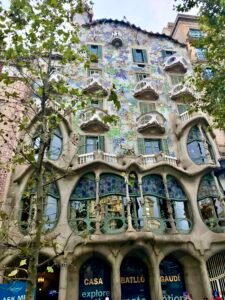

Welcome to BCN & Beyond
Experience Barcelona at a Slower Pace

A Slow Traveler’s Guide
Step into Barcelona…
at a slower pace.
At Barcelona & Beyond, we believe that travel is about more than checking off
visits to famous landmarks—it’s about immersing yourself in the soul of a
place. We are an adopted Catalan family who has lived in Catalonia for over
five years, speaking three languages and embracing everything about this
vibrant culture.
A Slow Traveler’s Journey
Discover Barcelona's Soul



Listen to our Podcast Trailer


















Why Slow Travel?
Unhurried experiences
Savoring each moment instead of rushing through a checklist.
Cultural immersion
Connecting with Barcelona’s people, traditions, and lesser-known treasures.
Rest and wonder
Finding places that restore your soul and reignite curiosity.
Let’s Begin Your Journey
Join our community and never miss an update.
Stay Inspired & Keep Learning
Sign up today and take the first step toward a smarter, more successful you.

Stay updated with the latest knowledge and inspiration.
Fresh Insights for Your Growth

Casa Batlló: Gaudí’s Fanciful Creation
Antoni Gaudí’s Casa Batlló both mesmerizes and is a feast for the senses! Come in, stay awhile and find out why the jewel of Barcelona is such a fanciful creation!

Arc de Triomf: A Gateway to Slow Travel in Barcelona
Arc de Triomf: A gateway to slow travel in Barcelona. Enjoy the intentional slowing down of time, inhale the smells, savor the flavors and take time to just be in Barcelona.

OUR MISSION: EMPOWERING YOU BEYOND LABELS
Helping you grow, learn, and thrive—your way.
Whether you’re a student, educator, professional, or lifelong learner, we’re here to support your journey—because your potential goes beyond labels, and so should your opportunities.




